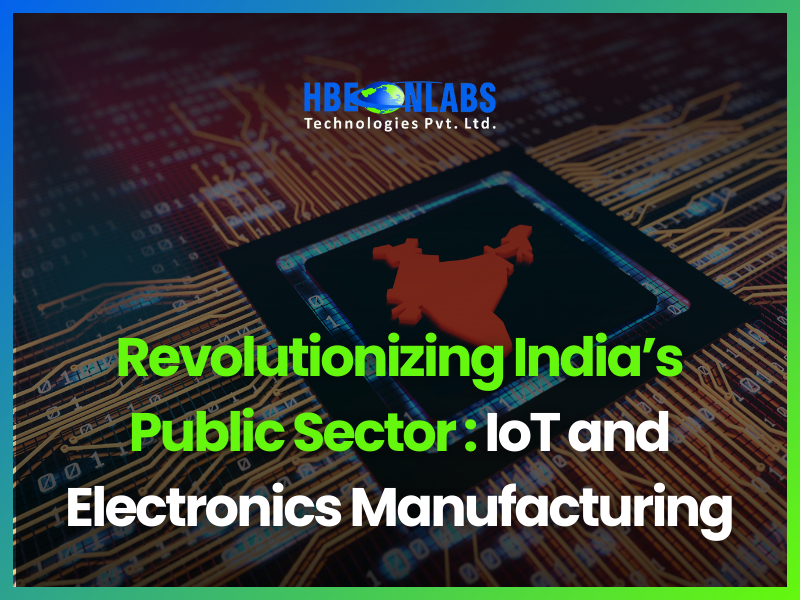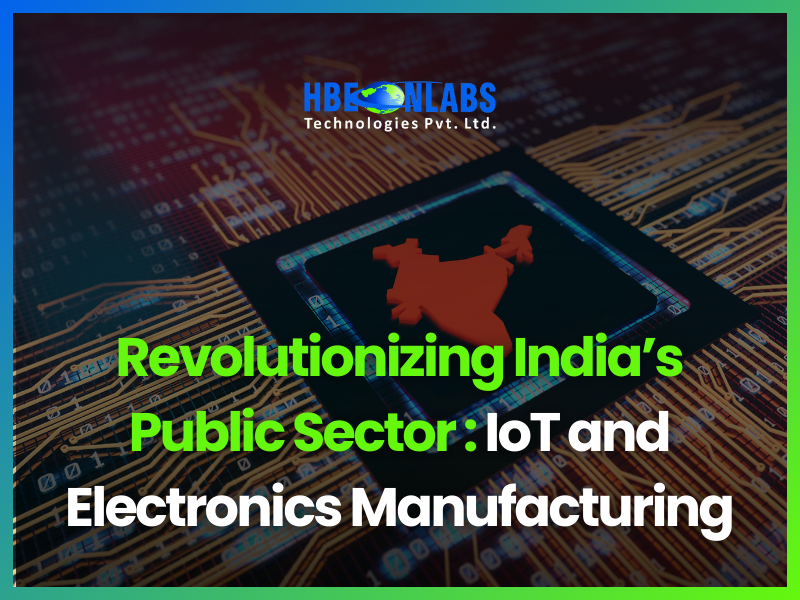Address:
Plot No. B-6/5, Site 5 Surajpur Industrial Area, Block F, Surajpur Site V, Greater Noida, Uttar Pradesh 201306
For Business: +91 9212314779
For Careers: +91 84483 40400
Landline: 0120-4298000
Address:
Plot No. B-6/5, Site 5 Surajpur Industrial Area, Block F, Surajpur Site V, Greater Noida, Uttar Pradesh 201306
For Business: +91 9212314779
For Careers: +91 84483 40400
Landline: 0120-4298000


As the Indian government focuses on creating a “Digital India,” the integration of IoT solutions and electronics manufacturing in the public sector has become a driving force for efficiency and innovation.
From smart cities to agriculture, IoT technologies and customized electronic devices are reshaping public services, enhancing transparency, and optimizing resource use.
This blog delves into how IoT companies in India and electronics manufacturing services are helping the government implement transformative technologies across various sectors.
The Growing Role of IoT in India’s Public Sector
The public sector in India is increasingly adopting IoT for real-time monitoring, data collection, and automated management systems. Some impactful IoT applications include:
Smart sensors and IoT devices enable real-time monitoring, reducing congestion and enhancing the quality of life for residents.
These IoT applications help reduce water usage and optimize fertilizer application, which is crucial for India’s agriculture-dependent economy.
IoT solutions companies in India provide customized hardware and software for such applications, meeting the unique demands of public health infrastructure.
How Electronics Manufacturing Supports IoT in the Public Sector
The effectiveness of IoT solutions relies heavily on robust electronics manufacturing. Electronics manufacturing services companies in India are rising to this challenge by creating durable, cost-effective devices designed for the specific needs of public sector projects.
Some examples include:
Benefits of IoT and Electronics Integration for Government Schemes
Government initiatives such as Smart Cities Mission and Digital India rely on IoT and advanced electronics to achieve their goals. The integration of IoT and electronics in public infrastructure brings several benefits:
Challenges Facing IoT and Electronics Integration in the Public Sector
Despite the advantages, the adoption of IoT and electronics manufacturing in the public sector is not without challenges:
Future Prospects: Scaling IoT and Electronics in the Public Sector
India’s public sector has just begun to explore the potential of IoT and advanced electronics. As the electronics manufacturing services industry grows, and top IoT companies in India continue to innovate, the future holds promising developments:
In conclusion, India’s public sector embraces IoT solutions and electronics manufacturing in the development of an infrastructure which is more connected, efficient, and transparent.
Leading this sector in the areas of IoT manufacturing and electronics development, HBeonLabs supports it by providing specific IoT devices, besides offering a reliable manufacturing service which follows the agenda set by the digital transformation programs of India.
HBeonLabs bridges the gap between technology and public service by unlocking in India’s public sector the full potential of IoT and smart electronics.